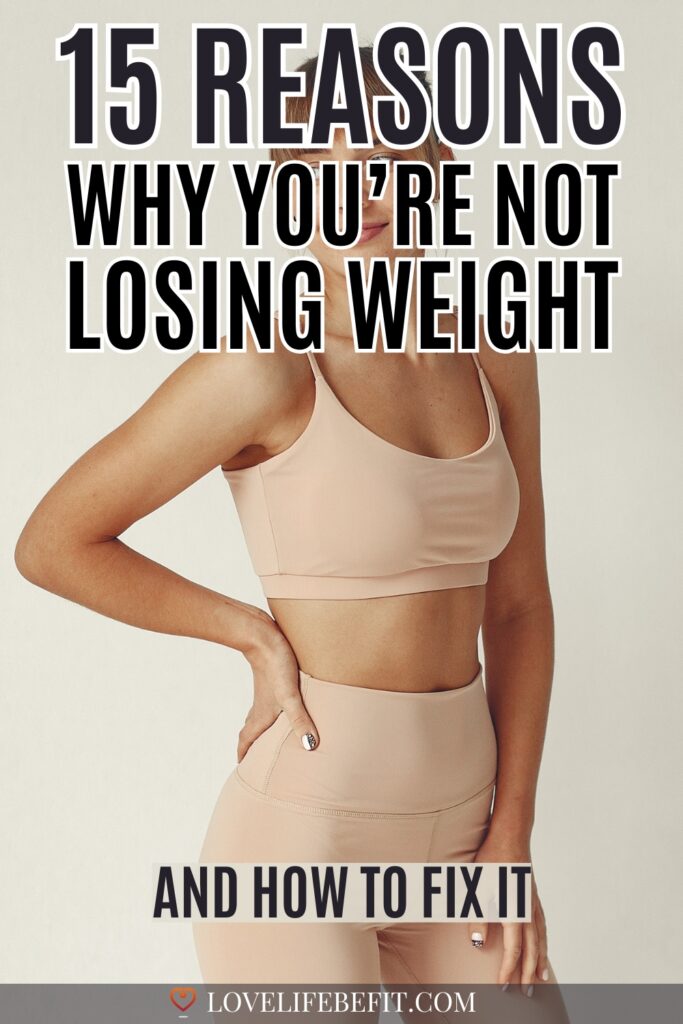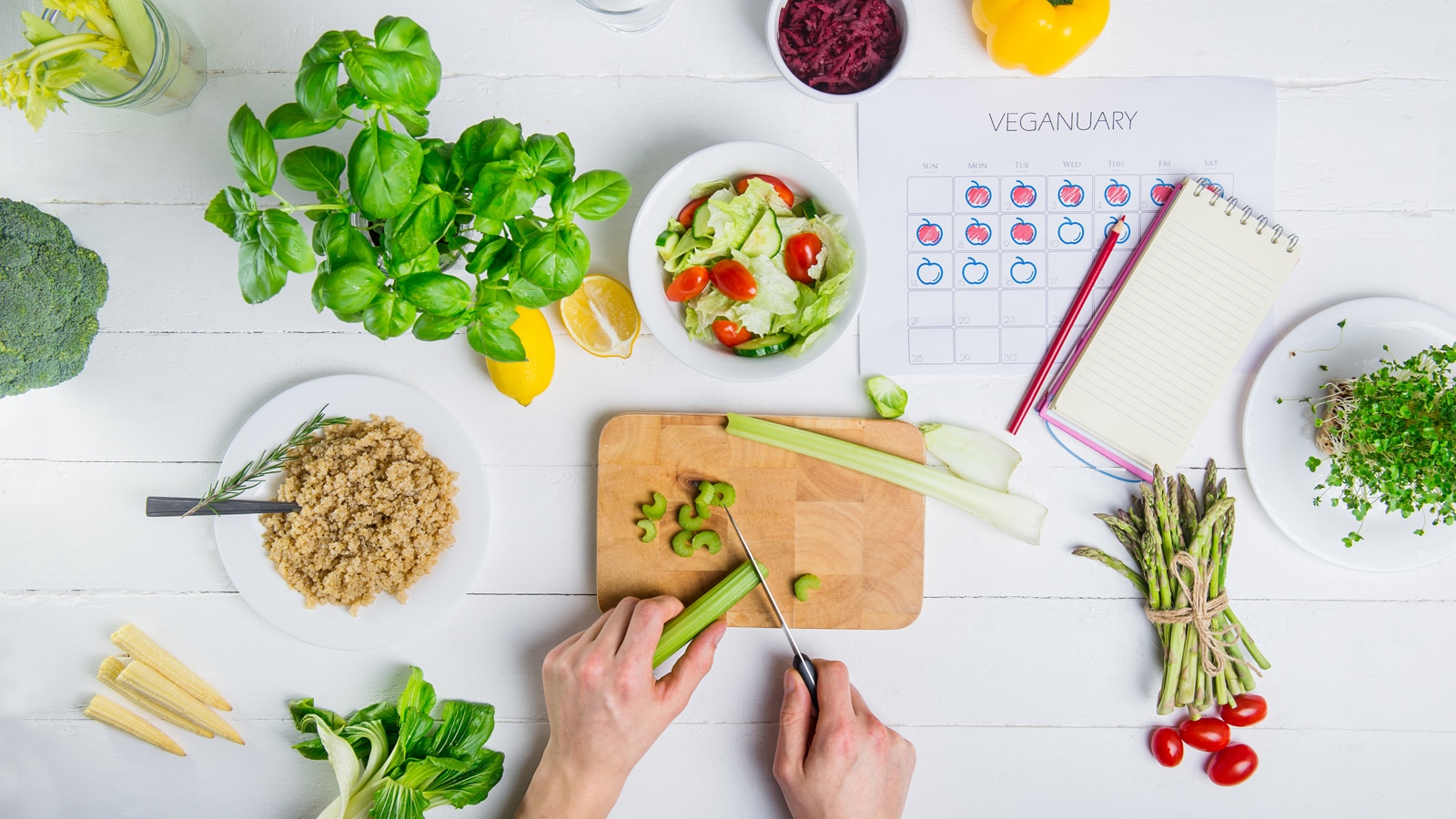15 Reasons Why You’re Not Losing Weight
Most diets start off well, then start to stall. You hit the wall of the weight loss plateau. So what can you do when you’re not losing weight?
These are some of the top reasons for “Why your weight loss is slow“:
- You don’t need to lose weight.
- Your diet is sending your body into hibernation mode.
- There are underlying health issues.
- As you lose weight, your body needs fewer calories.
- You’re eating more than you think.
- You’re doing the wrong sort of exercise.
It’s time to take stock and find out where your weight loss plans are going wrong…

15 Reasons Your Weight Loss Is Slow
1. You Don’t Need To Lose Weight
Anorexia and eating disorders are shockingly common. Fake images on social media encourage people to chase levels of extremely low body fat instead of aiming for a normal healthy weight.
If you think you might have a problem with eating disorders, please seek out help. Make a doctor’s appointment or call a helpline. UK helpline. US helpline.
If you do need to lose weight, please read on.
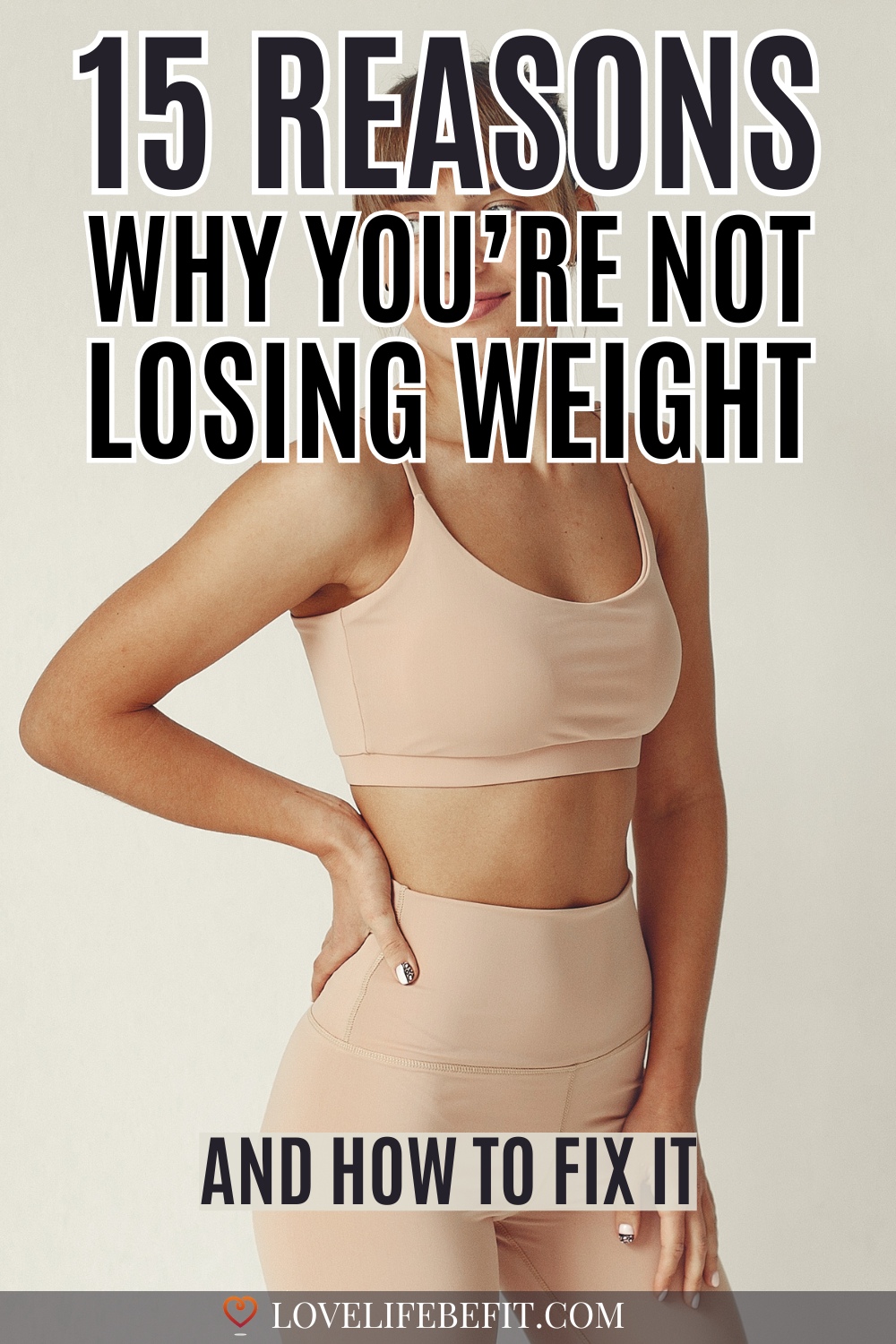
2. The Cause Is Your Diet
What the… I know this is so frustrating…
So many diets rely on really low-calorie intakes to get quick results. The problem is crash diets slow down your body’s metabolism. It’s a bit like sending your body into hibernation mode.
Crash diets leave you dehydrated, causing headaches, dizziness, constipation, and cramps. As soon as you rehydrate, the weight goes back on. Slow and steady weight loss is the best option for long-term sustainable results. Lose weight slowly and keep it off permanently.
3. Underlying Health Issues
The main health issues known to affect weight loss and slow your metabolism are Cushing’s syndrome or hypothyroidism (an underactive thyroid). Thyroid issues are common and will affect one in eight women during their lifetime.
Many women don’t realize they have a problem, so I suggest seeking out medical advice if you have any concerns.
4. As You Lose Weight, Your Body Needs Less Calories
Your calorie needs are based on your existing weight, your age, sex, and the amount you exercise. So, someone with a lot of weight to lose will find it much easier to build a calorie deficit.
If you only have 7 pounds to lose, it’s harder to build a weight loss deficit. Be prepared for slow weight loss. Find an exercise regime you enjoy and aim at creating a healthy lifestyle. Accept that you may only lose weight at a rate of 0.5 to 1 pound per week.
With patience and persistence, you’ll still make it to your ideal weight.
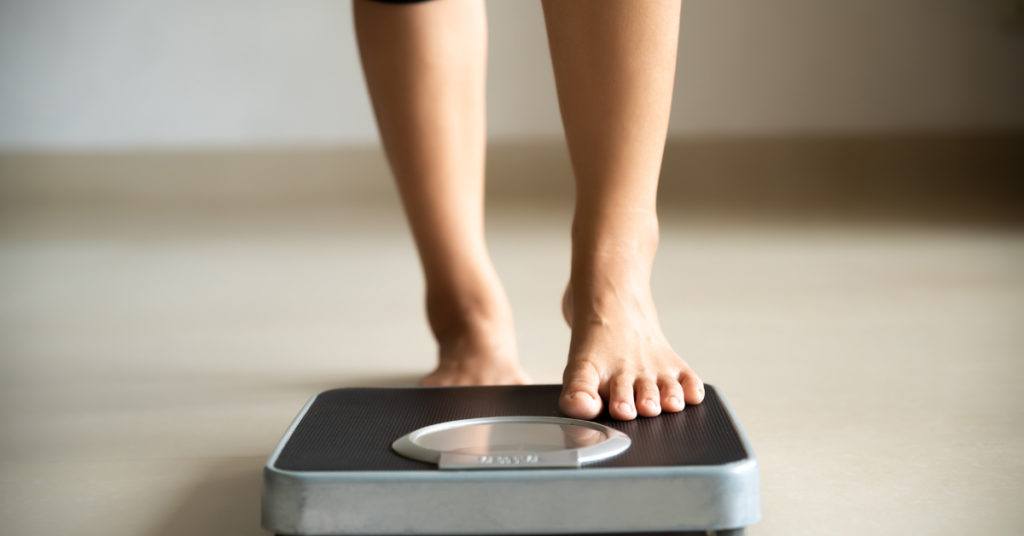
5. Your Weight Loss History
This is a tough one. There’s increasing evidence that your weight loss history affects your ability to lose weight.
Yo-yo diets are not just bad for your health; they can make it harder to lose weight by messing up your metabolism. Your metabolism can slow as you lose weight with your body trying to hang on to your body mass.
That doesn’t mean you should just give up! HIIT exercises and strength workouts will help you get in shape and give your metabolism a boost.
6. It’s Normal For Your Weight To Fluctuate
I’m sure most of you will know your weight fluctuates during the day. It can change by several pounds depending on:
- when you last had food
- if you’re fully hydrated
- or even the type of food you’ve had to eat.
Salty food and carbs will make your body retain water. This means the food you had to eat at lunch or the day before can add pounds to your weight on the scales.
It’s the main reason so many people lose a lot of weight quickly when they start a low-carb diet. A lot of the weight loss in the first week will be water. If you’re female, you can expect your weight to fluctuate even more. You don’t need me to tell you how bloated your period makes you feel!
Try weighing yourself at the same time every day or week and use a tape measure to track the inches lost. Measure the top of your arms, your bust, your hips, the widest part of your bottom, and the top of your legs.
Muscle mass is heavier than body fat. So if you’re combining your diet with increased exercise – and you should be, you could be gaining muscle weight. This doesn’t mean your diet is failing. It means you’re getting stronger and fitter. The tape measure is a good way to confirm you’re still shifting body fat.
7. You’re Eating More Than You Think
Diets based on calorie counting (or point counting) can be difficult to stick to. There’s the slice of toast you forget to account for or the cheeky biscuit you had with your coffee.
Quickly forgotten, but slip-ups like this can throw your planned calorie deficit out the window. They also do little to change your eating habits and help you make the switch to healthy eating.
It’s not so much the quantity but what you’re eating that counts. These are the two main culprits high-jacking both your diet and your overall health:
- Processed foods. These are laden with refined carbohydrates, unhealthy canola or vegetable oils, excessive sodium, and additives. Think of processed food as junk calories. It leaves your body searching for more food to get the nutrients it needs.
- Added sugar. Sugar is highly addictive and raises your blood sugar levels. How many people are able to eat just one sweet? It’s really difficult. When you’re trying to lose weight it’s best to quit added sugar completely or use natural sweeteners such as green stevia, rice malt syrup, or honey in moderation.
For many people ditching the diets and opting for healthy eating is a much better way to lose weight.
8. You’re Eating Too Many Carbs
Carbs are high in calories, especially if they’re from highly processed foods laden with fat and sugar. You don’t need to go as far as the popular Keto diet to cut back on your carbs. Restricting food groups completely from your diet can just lead to cravings.
It’s far better to eliminate unhealthy foods from your diet than restrict food groups. Cut out the empty calories of highly processed food and fill up on:
- Protein from lean meat or legumes (beans, peas, and lentils).
- Fresh fruit and vegetables.
- Whole-grain carbohydrates
- Small quantities of healthy fats such as olive oil, avocados, and nuts.
- Occasional dairy or plant-based substitutes.
It’s about finding a balance. The idea should be to get fit and healthy, not just to lose weight. If your weight loss is slowing down or you’re finding it very difficult to lose weight, rethink your diet.

9. You’re Doing The Wrong Sort Of Exercise
It’s easy with exercise to end up in your comfort zone. If you want to lose weight, make sure you’re challenging yourself.
If you haven’t exercised in years, a fast-paced walk is a good place to start. (Always get medical advice before launching into a sudden exercise program).
Your fast-paced walk starts to feel easy. Try a slow run!
Does a slow run feel easy? Try running faster.
It’s the intensity that makes the difference.
It doesn’t matter whether you’re walking, running, working out in the gym, or doing yoga unless you’re spending hours every day exercising (and who has the time), your body needs to be worked hard if you want to lose weight.
10. You’re Not Building Muscles
It’s a fact that muscles burn more energy than fat cells. Building muscles will boost your metabolism. It’s one of the reasons men tend to have faster metabolisms than women.
Any strength-building exercise will help with your weight loss. Take to the gym, join a yoga class or find a climbing wall.
I’m not talking about bulky muscles. Toning up your body will give your metabolism a boost and help protect your body from injury.
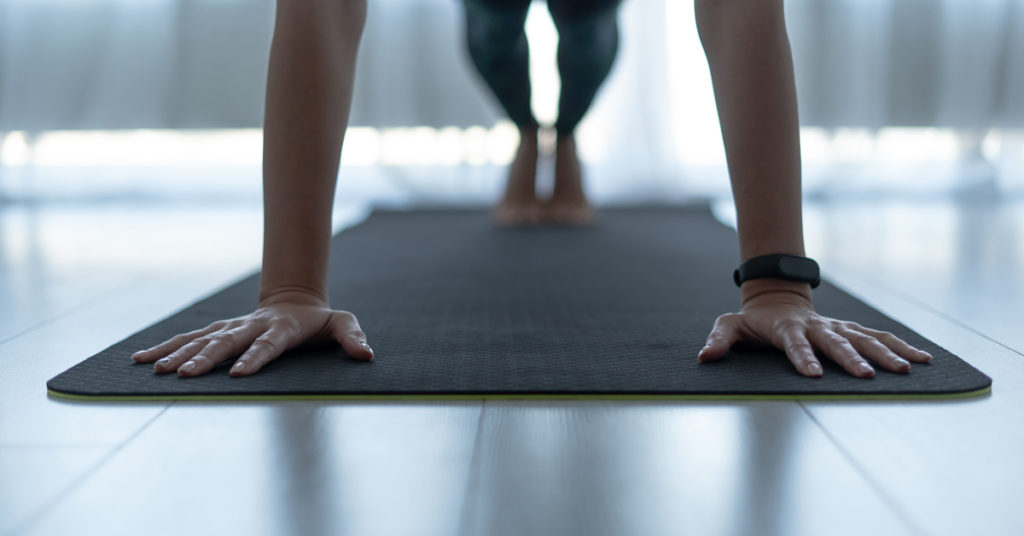
11. Stress Is Affecting Your Ability To Lose Weight
Weight loss is complex and stress is yet another factor that could be affecting your ability to shift the pounds.
Stress affects everyone differently. Some people may lose weight, but in others, it can trigger comfort or binge eating and even affect your metabolic rate.
It’s not a condition to take lightly, and seeing a doctor should be the first priority if you’re suffering from the effects of stress.
Facing up to the causes of stress and seeking help to reduce or eliminate it from your life should be your first step. Sadly, I know this can be very difficult in today’s society, where support systems are often lacking or non-existent.
For low-level stress, mindfulness can be helpful, and meditation is a good way to calm the mind. Daily exercise really does help. It won’t solve your problems, but it will give your mind a brief respite.
12. You’re Not Drinking Enough Water
Staying hydrated is so important if you’re trying to lose weight. Your brain plays tricks on you.
It can tell you to eat when really you’re just thirsty. Fortunately, there’s a very simple solution: drink a glass of water before you sit down to eat.
13. You Need To Avoid Alcohol
When you’re trying to lose weight, alcohol is your enemy. It reduces your inhibitions and self-control. The next thing you know, you’ve eaten half a tub of Ben and Jerry’s while watching Bridget Jones’s Diary.
It’s a good idea to cut or limit alcohol when you’re trying to lose weight. It will also give a big boost to your health!
14. Be More Active During The Day
It’s easy to start exercising and immediately cut back your general daily movement because you feel tired! Going out for a 2-mile run, then sitting on the couch all day, isn’t the way to lose weight. You need to keep your normal movement up.
Walk about the office, walk to the local shop, take the stairs instead of the lift – it all helps.
15. Lack Of Sleep May Be The Reason Your Weight Loss Is Slow
Studies have shown the amount of sleep you get may be related to your weight loss.
Making sure you get between six to eight hours of sleep every night will help you stick to your weight loss plans.
If All Else Fails, You Need A Support Group
Some people will have the resolve to lose weight on their own; others need a support group to successfully lose weight.
Weight loss is tough, and being accountable for your choices to a group or coach makes a difference for many people.
Find what works best for you, but if you’re struggling, don’t go it alone. Seek out your support group, people who encourage you to get fit and spend less time with people who want you to slip back into bad habits.

